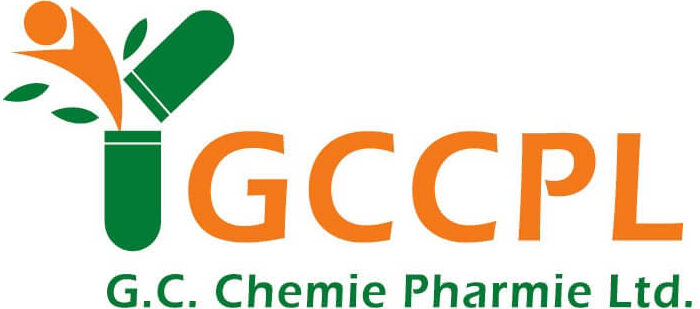Introduction
One of the most important recent developments is the innovation in nutraceuticals, which is transforming global health and wellness. Functional foods and supplements are changing dramatically as health-conscious consumers increasingly relate their dietary choices to long-term wellness.
It means the sector is offering a new generation of unique, practical, and fun products that address a variety of health concerns.
Today’s consumers are looking for products that help them achieve holistic lifestyle goals rather than meet basic nutritional needs. Their desire to live a long, healthy life drives their demand for functional goods with dual benefits.
This new consumer focus has led to significant changes in nutraceutical manufacturing processes, prompting companies to invest in new technologies, sustainable sourcing, and customized nutrition in their products.
What Are Nutraceuticals and Functional Foods?
Nutraceuticals are any food or medicine components that have health or therapeutic benefits, either in preventing or curing disease.
The various classes of nutraceuticals are:
- Herbal supplements
- Fiber and vitamins
- Phyto-nutrients
- The probiotics
- The pre-biotics
- Protein supplements
- Also others
It’s clear that many definitions and classifications of nutraceuticals exist, mainly because the FDA has not defined the term. Nutraceuticals and dietary supplements are not subject to FDA regulation when used by consumers, unless they contain a new dietary ingredient that was previously unavailable.
Consumer goods that have extra vitamins, minerals, or other ingredients added to enhance their nutritional value are known as functional foods. Fortified foods, including juices, grains, cereal, milk, and milk substitutes or complete foods, are the most well-known examples.
Evolution of Nutraceutical Manufacturing
The growing emphasis on preventive healthcare and the increasing customer demand for natural products have contributed to the recent notable expansion of the global nutraceutical market. Nutraceuticals, which include functional foods, herbal products, and dietary supplements, provide pharmaceutical companies a profitable way to diversify their revenue streams and improve people’s overall health worldwide.
Manufacturers need to resolve these problems. The global nutraceuticals market, valued at $291.3 billion in 2022, is projected to grow at a compound annual growth rate (CAGR) of 9.4% through 2030. During the same period, global growth is expected to surpass the U.S. growth rate of 7.4%.
However, the distinction between API and formulations in pharma and nutraceutical formulations became less clear as science progressed. Many pharmaceutical companies are now branching into the nutraceutical industry, leveraging their experience in API manufacturing to develop premium, scientifically supported ingredients.
Key Innovations Transforming the Industry
A variety of scientific and technological advancements is driving global innovation in nutraceuticals, as well as how they are developed and marketed. Among those developments are:
Increased focus on Immune function and Preventive Health: As people have increasingly embraced their individual health, there is greater consumer demand for nutraceutical products that support immune function and preventive health. Recent developments employ science-based nutraceuticals that impact various aspects of immune function.
Products that offer preventive health benefits typically contain nutraceuticals such as probiotics, vitamins, and herbal extracts. By employing customized 3D printing technology, manufacturers can design supplements that adapt nutritional elements to the individual needs of specific diets.
Sustainability and Growth of Business: The global nutraceutical industry is also seeing tremendous growth as a result of the greater emphasis on the sustainability of those products. New packaging made from biodegradable materials reduces environmental impact and is aptly suited to the environmentally conscious consumer.
Regulatory and Trust Factors: The nutraceutical industry is also strongly affected by changing regulations and legislation. The imposition of more substantial safety regulations by regulatory authorities in the United States, China, India, and Israel is designed to foster consumer confidence.These regulatory changes give consumers confidence in safety and effectiveness, in line with high product-quality standards. The use of artificial intelligence (AI) and blockchain technology creates a basis for traceability and compliance in the supply chain.
Functional Food Innovation: Blurring the Line Between Diet and Medicine
As functional foods and supplements evolve, they are blurring the line between food and medicine. No longer fortified foods, functional foods are now formulated with specific, clinically proven bioactive agents to address particular health needs.
One example is that spreads containing plant sterols help modulate cholesterol levels, and foods augmented with pre- and probiotics aid gastrointestinal health. Adaptogens such as ginseng and ashwagandha are also finding their way into beverages and energy foods to boost stamina and ease stress.
This fusion of food and medicine speaks to the tremendous innovation in nutraceuticals, where foods are the natural drugs, and average diets are essential agents of preventive health care.
India’s Role in Global Nutraceutical Manufacturing
As awareness of health and well-being continues to rise among consumers, the global nutraceutical industry has experienced tremendous growth. Nutraceuticals take the form of dietary supplements, functional foods, and medicines.
They are becoming increasingly popular due to their potential health benefits, compared with other food products that offer only nutritional value. There has been significant development in nutraceutical manufacturing driven by this rising demand.
India is now a significant player in the global nutraceutical industry, on account of its highly developed pharmaceutical industry and its natural flora. Nutraceutical manufacturers leverage existing Indian manufacturing technologies to produce globally competitive products. In addition to meeting domestic demand, this expansion of the nutraceutical manufacturing process positions India as a significant exporter of nutraceuticals.
Essential Factors to Consider When Selecting an Indian Nutraceutical Manufacturer
When choosing a nutraceutical producer, consider the following factors to ensure compliance with the necessary manufacturing requirements.
Quality Control: Ensure the manufacturer has a robust quality control system to ensure the product’s safety and effectiveness.
Regulatory Compliance: Ensure the producer complies with all domestic and international regulatory requirements.
Experience and Knowledge: A manufacturer that has significant experience and knowledge in the production of nutraceuticals should be sought.
Technology and Innovation: Learn how the producer is leveraging new technologies and innovative systems to enhance the quality and efficiency of its products. These are current trends in nutraceutical production.
Cost Efficiency: Consider the manufacturing costs and the potential for economies of scale.
Regulatory and Quality Challenges
The rate of innovation in the nutraceutical sector is at an all-time high. Nutracutical businesses face unprecedented opportunities and stringent regulatory requirements as demand for products with health and wellness claims increases.
There are many challenges in the production of nutraceuticals, which can significantly affect output quality and efficiency. The usual problems are sourcing high-quality raw materials, maintaining formulation uniformity, and ensuring strict adherence to quality control standards.
The observance of regulatory requirements complicates the manufacturing processes. Cost is another hurdle, as manufacturing nutraceuticals requires specialized facilities and trained personnel, which may make it out of reach, particularly for small- to medium-sized businesses.
Another difficulty is the overlap between API and formulation in pharma and nutraceutical standards. Finding sustainable raw materials without sacrificing quality is becoming increasingly complex as demand grows.
Conclusion
The innovation in nutraceuticals holds the key to the future of global health, with its enormous advancements in sustainable environmental practices, personalized nutrition, and scientific advancement.
As the lines continue to blur between medications, functional foods, and supplements, nutraceuticals will become a key element of wellness and preventive health care.
With its expanding influence in the nutraceutical industry, a well-established pharmaceutical sector, efficient API manufacturing capabilities, and a focus on research-based solutions, India is strategically positioning itself to lead this transformation.



